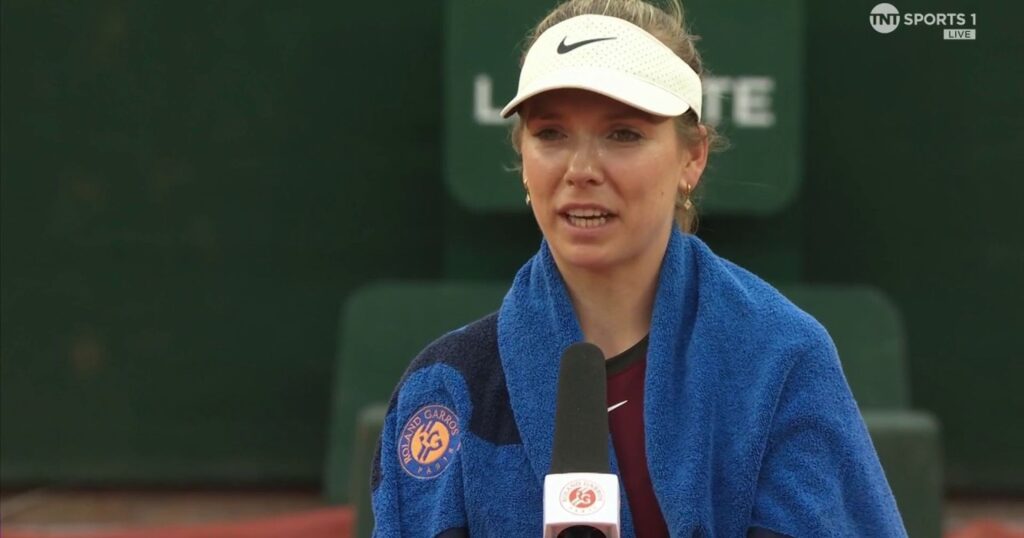In the world of professional tennis, players often face the challenge of maintaining strict dietary habits to optimize their performance. Recent news surrounding British tennis player Katie Boulter sheds light on her unique approach as she prepares for a significant tournament: the French Open, held annually at Roland-Garros. Aiming for an impressive run in this prestigious event, Boulter is adopting a mindset that involves delaying certain indulgences, specifically her cherished croissant, in a bid to remain fit and focused.
Katie Boulter, widely recognized for her athletic prowess and competitive spirit, is set to participate in the French Open, one of the four Grand Slam tournaments that draw players from all around the globe. Roland-Garros, as it is called in French, is especially notable for its red clay courts, which can dramatically change the dynamics of matches and demand a different skill set compared to tournaments played on grass or hard courts. As Boulter anticipates her time in Paris, she understands that the physical demands of playing on clay require her to be in impeccable shape.
Boulter’s strategy encompasses not only her practice regimen but also her nutrition. She has publicly expressed a desire to avoid indulging in her favorite pastry, the croissant, for two weeks—a challenging pledge, no doubt, considering the cultural importance and delicious offerings of French cuisine, especially in the city of Paris. Many athletes often find themselves grappling with the sacrifices required to reach peak performance while desperately wanting to indulge in local flavors and comforts. For Boulter, this commitment speaks volumes about her focus and determination to excel at the French Open.
The French Open offers a unique setting and atmosphere that can either uplift players or overwhelm them. Boulter’s resolve to stay disciplined echoes the sentiments of many elite athletes who recognize that maintaining a strong mental and physical state is crucial to achieving success in such high-stakes competitions. The rigorous nature of the tournament necessitates an approach that balances training, recovery, and, inevitably, lifestyle choices—dietary inclusions or exclusions are essential elements of this balance.
With her impressive background including a series of recent victories, Boulter is viewed as a player with the potential to make a significant impact at Roland-Garros. Her previous performances have established her as a formidable competitor on the WTA Tour, making her a player to watch during the tournament. The anticipation surrounding her time in Paris is heightened not only by her athletic abilities but also by how she presents herself mentally before and during the competition—including the sacrifices she is willing to endure, such as delaying her enjoyment of authentic French croissants.
As she aims for a prolonged stay in the tournament, Boulter joins a myriad of other competitors, all seeking to carve their names into the annals of tennis history. The grit and resilience necessary to conquer the elements of Roland-Garros are significant, and Katie Boulter believes that her focused approach, evidenced by foregoing treats in favor of her fitness, may set the stage for an exceptional performance.
The French Open is not merely a series of matches on clay; it is a confluence of pressure, prestige, and passion. For players like Boulter, the desire to succeed and the traditions of the host country intertwine, leading to choices that can define their careers. Whether or not she is able to resist the pastry she loves, Boulter’s journey through Roland-Garros promises to be filled with determination and unwavering spirit—qualities that embody the essence of competitive tennis. Ultimately, her story speaks to a broader narrative of commitment, sacrifice, and the pursuit of excellence in the world of sports.












